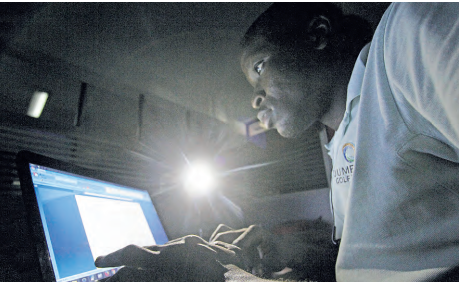

Electricity users were in the dark for an average of three hours over the July-December period in 2024, which is 30 minutes more compared to January-June of the same year.
The bi-annual statistics report for the financial year 2024/2025 released Thursday by the Energy and Petroleum Regulatory Authority (EPRA) shows that the Customer Average Interruption Duration Index (CAIDI), which measures the average time it takes to restore service to customers after an outage, increased to an average of 2.56 hours, exceeding EPRA’s target of 2.45 hours.
The delay is 28 minutes more compared to the 2.28 hours recorded in the same period in the previous financial year.
The inconvenience and economic setbacks caused by these prolonged blackouts are palpable for households, businesses, and public services alike.
October had the shortest restoration time of 2.42 hours while November recorded the longest restoration time of 2.76 hours.
The report further shows that Kenyans have experienced an average of nine hours of electricity outages per month an increase from the 8.84 hours recorded during the corresponding period in the previous financial year way above the regulator’s target of 3.25 hours.
The finding quantified by the System Average Interruption Duration Index (SAIDI), indicates a considerable decline in the consistency of power provision across the country.
SAIDI, a key measure of electricity reliability, tallies the total duration of all power interruptions experienced by the average customer during a specified period shows that customers experienced outages lasting an average of 9.15 hours per month.
However, the frequency of power interruptions eased during the period under review, indicating Kenya Power’s resolve to keep customers connected.
According to EPRA, the System Average Interruption Frequency Index (SAIFI) which measures the average number of interruptions that any given customer experiences dropped to 3.57 times, an improvement from the 3.87 interruptions per month registered in a similar period in the last financial year.
However, it was above the 1.63 interruptions threshold per month set by the Authority. The findings come just a year after the regulator sought views from the public on how to determine compensation for affected customers in case of power interruption.
Should the Energy (Electricity Reliability, Quality of Supply and Service Regulations 2024) become law, postpaid customers will see their bills netted off, while those on prepaid will get free tokens for their usage.
Currently, Kenya Power compensates Kenyans for injuries or damaged assets but does not have a provision for compensating those who suffer power losses that result in businesses incurring losses.










